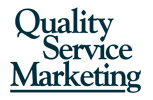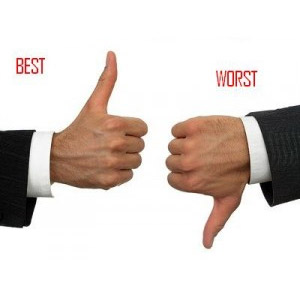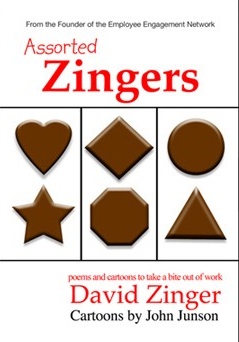I met Zane Safrit by phone several years ago when he interviewed me on his radio show, and we’ve stayed in touch to share our work in employee engagement and organizational leadership. Our most recent conversation centered on employee happiness as a factor in employee engagement.
Zane has held numerous positions ranging from customer service rep to CEO over the course of his impressive career where he applied employee recognition and engagement for positive results. He’s now a successful business consultant helping companies do the same. He’s also the author of Recognize THEM!: 52 Ways to Recognize Your Employees In Ways They Value and The Engaged Hiring Process: A Simple Plan to Help You Hire the Best. Zane’s latest book, First, Engage Yourself, shares do-able steps that managers can use to create a culture of engagement. I’m honored to feature him on my blog.
QSM: Zane, let’s start with the of importance of recognizing employees. What matters in recognition that we’re not doing?
Zane: The “What” matters less in employee recognition than the “Who.” The employee in employee recognition matters most.
- How do they like being recognized? A personal note, a conversation – informal or formal, a gift, a plaque.
- When do they like being recognized? Are they a morning person or an afternoon person? That depends on their work demands and those who deserve recognition are very committed to their work – their team, their customers, their integrity. Choose the time when it interferes the least.
- Where, in private or in a meeting, standing in front of the group or with the group?
Use their name, articulate what’s being recognized and why, communicate why and how it matters to you and those around you. Then find the right venue to share that recognition. The right venue is the one that matters most to the person being recognized.
Otherwise, they will have difficulties digesting this just dessert, and the recognition loses its impact at best and is counter-productive at worst. Like a politician popping up at an event for which they deserve no credit, you’ll give a speech, blah blah, leaving the recipient feeling awkward. You’ll have missed a great opportunity to honor that person and build a relationship with trust and engagement.
QSM: If employee recognition is so basic, why is it so difficult to apply/practice?
Zane: Employee recognition is built on the virtues of compassion and empathy. They’re innate, we’re born with them. Like seeds, they only need a chance to set roots in our behaviors and perceptions. After that we’ll find the means to nurture them or not.
Too much of our culture fails to nurture those qualities. That’s being generous to say it like that. Too much of our culture degrades, denigrates, demoralizes those who show empathy and compassion, patience, forgiveness.
In too many corporate cultures, careers are built and rewarded on the basis of denying compassion and empathy. The hard-charging, tough-minded, gets-things-done-no-matter-what manager is rewarded with perks and privileges and moves up the career ladder. Employees watch, learn and change. They change their behavior and attitudes to better emulate those they see moving ahead.
Upton Sinclair, author of The Jungle, wrote: “It is difficult to get a man to understand something, when his salary depends on his not understanding it.”
So, as long as the rewards are weighted towards disengaging behaviors many people will change to deny their natural tendencies or they’ll favor the development of other, less healthy tendencies of narcissism, arrogance, betrayal. That will keep it difficult to engage in healthy, sustaining ways with each other.
We have the choice. We can create our own conversations which lead to cultures. It’s always a choice. And it’s understandable which choices are taken.
QSM: Do you think employee engagement is still relevant? Where do you see engagement 5-10 years from now?
Zane: I have a love/hate relationship with the term “employee engagement.”
I love it for serving as an umbrella under which we can gather to discuss, debate, create and clarify the many activities, issues and factors related to creating a place to work where we’re proud, happy and productive.
I hate it for its sterile academic tone and because it’s being co-opted by too many experts who’d rather you engage with them than with each other: your peers and colleagues and direct reports.
What happens 5-10 years from now? We’ll always have engagement and the best organizations – the ones with the highest purpose that are most sustaining and most profitable – will have the highest engagement. That being said, expectations of and definitions of best will change. We’ll see significant changes to institutions, social norms, organizational climate, the economy, politics. Those will change the expectations around what’s considered engaged, what’s our highest hopes for an engaged workplace or community and what we need to survive.
QSM: As a business professional, what do you think should be taught in schools (K-12 and college) to prepare students to be engaged, productive members of the workplace?
Zane: I love this question! It ties in with the question about if it’s so basic, why’s it so difficult to practice.
I think these negative reinforcements, rewards for the wrong behavior start as children enter school. No, this isn’t a diatribe about teachers or even common core and standardized tests. No, this started when John Dewey began lining kids up in rows of desks to sit silent and only raise a hand when called on and to work diligently, by themselves, to memorize only what’s presented and to never-ever ask Why, What if, Why Not? That prepared them, us, to sit in orderly rows of cubicles and look to the manager and bosses for direction and appropriate behaviors.
I’m not a childhood education expert. I don’t have kids. I don’t even have a pet. And I’ve never stayed in a Holiday Inn Express, either.
However, the skills of communication and collaboration, of team-work and team-building, of helping, of recognizing what makes each child unique as well as what commonalities are shared and, yes, of competition should be taught. Writing, debating, creating, art, theater, rhetoric, painting, drawing, music, athletics especially with team sports, those should be funded once again. These are all activities that help children learn to listen, to understand, to communicate ideas and find common ground, to collaborate and create together and to embrace diversity of ideas, even failures. These are activities that nurture those innate virtues of compassion and empathy.
Standardized tests work well with testing equipment not people.
Teachers, I believe, want the resources and mandates to teach to learn not to pass those tests.
I hope this stirs a discussion.
QSM: Thanks, Zane!
To continue the discussion, I invite you who are reading this post to comment: What do you think should be taught in schools to prepare students to be engaged and productive members of the workplace?








